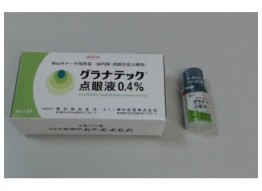Amitriptyline hydrochloride tablets 25 mg for depression, bedwetting and peripheral neuropathic pain
What are Amitriptyline hydrochloride tablets 25 mg for depression, bedwetting and peripheral neuropathic pain?
Amitriptyline hydrochloride tablets are utilized in the management of various medical conditions, each with its own distinct mechanism of action and effectiveness. The primary therapeutic effect of amitriptyline hydrochloride stems from its capacity to modulate neurotransmitter reuptake in the brain. Specifically, this medication functions by inhibiting the reuptake of key neurotransmitters, namely noradrenaline and serotonin, within the synaptic cleft. By reducing the reuptake of these neurotransmitters, amitriptyline extends their presence in the synaptic space, thereby enhancing their overall impact on neural transmission. This process ultimately contributes to the alleviation of depressive mood and the mitigation of symptoms associated with depressive states, making it a valuable treatment option for psychiatric patients suffering from these conditions.
Furthermore, amitriptyline hydrochloride exhibits additional therapeutic properties beyond its antidepressant effects. It can influence bladder function by suppressing the action of acetylcholine, a neurotransmitter that promotes bladder contractions. Consequently, amitriptyline aids in increasing bladder capacity and is frequently employed in the treatment of urinary incontinence, particularly in cases where acetylcholine hyperactivity is a contributing factor.
Moreover, amitriptyline is recognized for its efficacy in managing peripheral neuropathic pain. The precise mechanism of action in this context is not entirely clear, but it is believed to involve modulation of pain signaling pathways in the central nervous system.
Active principles: amitriptyline hydrochloride
Amount: 100 tablets
Maker: Sawai Pharmaceutical Co., Ltd., Osaka, Japan
Indications:
- depression and depressive state in psychiatric patients,
- bedwetting,
- peripheral neuropathic pain.
How to take
For depression/depressive state: adults should start taking 30-75 mg of the active principle a day. Then the dosage may be gradually increased up to 150 mg a day, divided into 2-3 times. Your doctor may decrease or increase the dosage according to your age or symptoms. However, the maximum dosage of 300 mg a day should not be exceeded.
For bedwetting: take 10-30 mg of the active ingredient at a time, once a day before bedtime. Your doctor may decrease the dosage according to your age or symptoms.
For peripheral neuropathic pain: adults should start taking 10 mg of the active principle a day. Your doctor may decrease or increase the dosage according to your age or symptoms. However, the maximum dosage of 150 mg a day should not be exceeded.
This medicine contains 25 mg of the active ingredient in a tablet
Contraindications: do not use for patients in early recovery period of myocardial infarction. Do not use for patients with glaucoma or urinary retention (prostate disease, etc.). Do not use for pregnant or breastfeeding women.
Important information
As this medication may cause drowsiness and reduced alertness, focus, and reflexes, patient should avoid operating hazardous machinery, driving a vehicle or working at heights.
Avoid taking alcohol while on this treatment.
Avoid consuming any foods that contain St. John's wort while taking this medicine.
If an allergic reaction occurs, patient needs to stop using the medicine and consult with their doctor. If patient is taking any other medication or treatment, they should consult with their doctor in advance.



